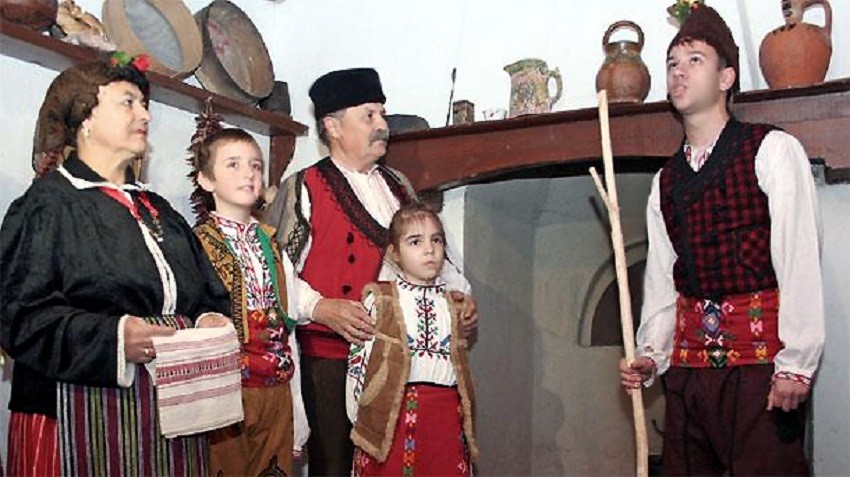People should not work on Ignazhden and it is not even good to leave home. Of course, most of us can't observe this folk tradition these days, but if we look at the other prohibitions involved in the observance of this feast in Bulgaria, they are completely feasible - no money should be lent, nothing should be taken out of the house, and when we go home or anywhere, we have to carry something in our hands. And it is even more important to have good thoughts and wishes in our souls.
According to Bulgarian folklore, Ignazhden is the day that marks the beginning of the New Year, hence the names New Year, Young Day, New Day.
On December 20, the Orthodox church commemorates the martyr Ignatius the God-Bearer, the child whom the Lord took in his arms, pointed it out to the apostles and said, "Unless you become like , you will never enter the kingdom of heaven."
With the incorporation of the pagan holiday to the religious feast the names Ignatovden or Ignazhden appeared. This is one of the most important days in the Bulgarian folk calendar when divinations and rituals are performed to attract good forces. The most common belief is related to the so-called “polaznik” - this is the first person to enter the home. He must be wealthy, his family good, healthy and lucky.
The birth pangs of the Mother of God began on St. Ignatius' Day. This is a common motif in Bulgarian folk songs. On this day for the first time the groups of the so-called “koledari” (carol singers) gather to choose their leader, the training of the young lads begins, who for the first time will take part in the ritual koledari tour of the village. They practise songs and chants performed on Christmas Eve.

"The Mother of God had her birth pangs from St. Ignatius’ Day to Christmas" is the song we chose for you. It tells how the Mother of God gave birth to the Young God on Christmas Eve. And she went out looking for a godfather. On the way she met St. Basil, but he refused to baptize him because St. John had baptized "earth and heaven", so he had to "baptize theYoung God".
Listen to the song performed by a male folklore group from the village of Telish, Pleven region.
Edited by Albena Bezovska
English version Rositsa Petkova
Photos: libraryThe band Tangra has been in the Bulgarian music scene for almost half a century and is still relevant. One of the favourite bands of generations of rock lovers, Tangra today leads a very active musical and creative life. Their line-up has been renewed -..
Young singer Paola ended 2024 on a positive note with "Silata na Lyubovta/The Power of Love" - not just a song, but a musical journey to the heart. "The idea is to show that we are all beautiful as we are, and that it is incredibly important what..
Shortly before the Fabrizio Parisi remix of the song "Dvama", marking the beginning of their joint project, singer Desi Dobreva presented her new original song "Na Kraya na Zemyata" (At the Edge of the Earth). She authored the lyrics and the music to..
True to her characteristic ethno style with a contemporary sound, Dimana Mircheva, known as DIA, presents her latest single - "Kusno e". In it, the..
About ten years ago, a little girl with a big voice appeared on a TV show. Mihaela Marinova, then 15, is now an established singer. In that time, she..

+359 2 9336 661
